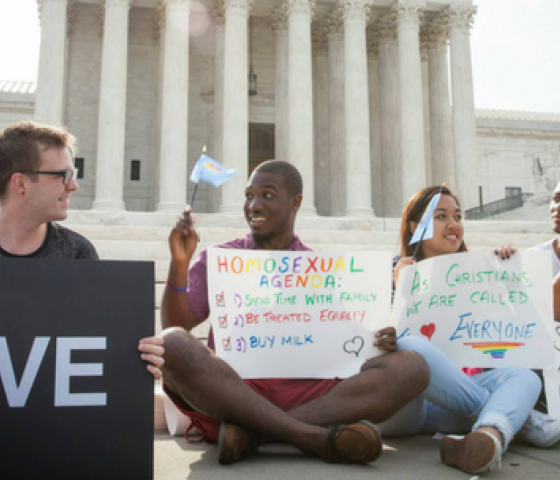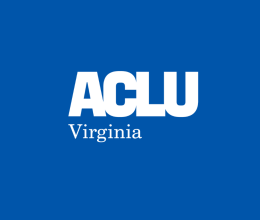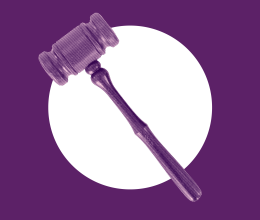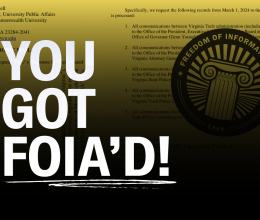QUANTICO, Va. – Students in Department of Defense Education Activity (DoDEA) schools on military bases sued today, arguing that DoDEA’s book removals and curricular changes following several executive orders from President Donald Trump violate their First Amendment rights. DoDEA operates 161 schools across 11 countries, seven states, Guam, and Puerto Rico.
The suit was filed on behalf of 12 students from six families, ranging in age from pre-K to 11th grade, that attend DoDEA schools as children of active duty servicemembers stationed in Virginia, Kentucky, Italy, and Japan. Since January, their schools have systemically removed books, altered curricula, and canceled events that the government has accused of promoting “gender ideology” or “divisive equity ideology.” This has included materials about slavery, Native American history, LGBTQ identities and history, and preventing sexual harassment and abuse, as well as portions of the Advanced Placement (AP) Psychology curriculum.
“Learning is a sacred and foundational right that is now being limited for students in DoDEA schools,” said Natalie Tolley, a plaintiff on behalf of her three children in DoDEA schools. “The implementation of these EOs, without any due process or parental or professional input, is a violation of our children's right to access information that prevents them from learning about their own histories, bodies, and identities. I have three daughters, and they, like all children, deserve access to books that both mirror their own life experiences and that act as windows that expose them to greater diversity. The administration has now made that verboten in DoDEA schools.”
In January 2025, President Donald Trump signed three executive orders which led to these removals: Executive Order (EO) 14168 titled “Defending Women From Gender Ideology Extremism and Restoring Biological Truth to the Federal Government”; EO 14185 titled “Restoring America’s Fighting Force”; and EO 14190 titled “Ending Radical Indoctrination in K-12 Schooling.” The suit names Secretary of Defense Pete Hegseth and administrators of the DoDEA system, arguing that by revoking students’ access to books and curricula about race and gender, defendants are harming students’ First Amendment right to receive information.
“Students in DoDEA schools, though they are members of military families, have the same First Amendment rights as all students,” said Emerson Sykes, Senior Staff Attorney with the ACLU’s Speech, Privacy, and Technology Project. “Like everyone else, they deserve classrooms where they are free to read, speak, and learn about themselves, their neighbors, and the world around them. These schools are some of the most diverse and high achieving in the nation, making it particularly insulting to strip their shelves of diverse books and erase women, LGBTQ people, and people of color from the curriculum to serve a political goal. Our clients deserve better, and the First Amendment demands it.”
The Department of Defense has also prohibited cultural awareness months, including Black History Month, Pride Month, Women’s History Month, and National Hispanic Heritage Month. Schools have also released guidance for yearbooks to prohibit students from using them to promote “gender ideology” or “social transition.” Books banned within some DoDEA schools have reportedly included “The Kite Runner” by Khaled Hosseini; “Freckleface Strawberry” by Julianne Moore; “Hillbilly Elegy” by Vice President JD Vance; “The Antiracist Kid” by Tiffany Jewell; and a preparation guide for the AP Psychology exam.
“By quarantining library books and whitewashing curricula in its civilian schools, the Department of Defense Education Activity is violating students’ First Amendment rights,” said Matt Callahan, Senior Supervising Attorney at the ACLU of Virginia. “The government can’t scrub references to race and gender from public school libraries and classrooms just because the Trump administration doesn’t like certain viewpoints on those topics.”
“Our clients have a right to receive an education that includes an open and honest dialogue about America’s history,” said Corey Shapiro, Legal Director for the ACLU of Kentucky. “Censoring books and canceling assignments about the contributions of Black Americans is not only wrong, but antithetical to our First Amendment rights.”
The suit was filed in the U.S. District Court for the Eastern District of Virginia by the American Civil Liberties Union, the ACLU of Virginia, and the ACLU of Kentucky.





